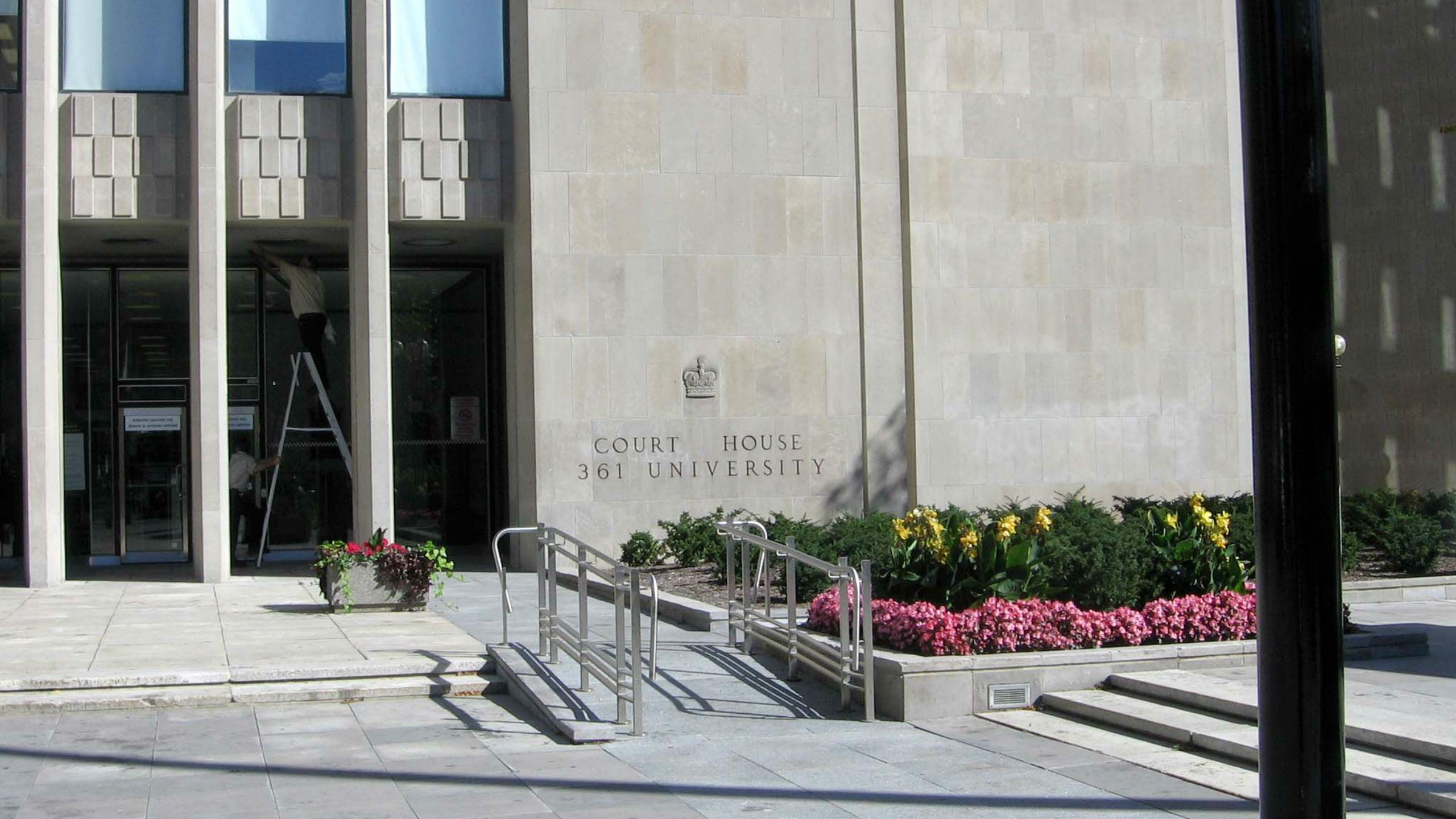By Kosalan Kathiramalanathan and Kelly Skjerven
A former Ryerson University student was sentenced to just over four years in prison and three years probation after pleading guilty to leaving Canada for the purpose of participating in terrorist activity.
Pamir Hakimzadah was a third year civil engineering student in September 2014 when he began exhibiting beliefs in support of ISIS and viewing their propaganda material online, Superior Court Justice John McMahon read in his sentencing decision.
Ryerson did not respond to request for comment regarding Hakimzadah’s enrollment at the university, which was first reported by Global News.
In court on Tuesday, Hakimzadah’s defence attorney stated his client is committed to taking part in “spiritual and psychological counselling” involving a deradicalization program, the Canadian Press reported. He is required to attend weekly sessions after his release on terms of his probation, McMahon said.
Hakimzadah left Toronto in October 2014, telling his parents he was leaving for two weeks to visit friends in Montreal. He instead boarded a plane and ended up in Turkey to make his way to Syria and join ISIS, McMahon said in his sentencing decision.
When he landed, a taxi driver in Turkey suspected he was planning to join a terrorist group and turned him in to local authorities. Hakimzadah was then deported back to Canada. Two years later, a family member turned him into police after he had confided in them about his plans to join the terrorist group.
Crown prosecutors previously asked for a six year prison sentence in court on Tuesday, while Hakimzadah’s lawyer asked for a three year sentence, the Canadian Press reported.
Hakimzadah has been in prison since his arrested in June 2016, CBC reported. That’s just under three years.
“While stiff sentencing is usually an important requirement for terrorism related offenses, there needs to be a path for redemption and that’s the path Mr. Hakimzadah is on”
In his decision, McMahon pointed to Hakimzadah’s guilty plea, support from his family and community and past precedent set by other terror cases for the four year and one month sentencing.
McMahon credited Hakimzadah’s time already served in prison, which means he will only need to spend the remaining six months behind bars. He is also eligible for parole after serving half of this sentence.
McMahon acknowledged the fact that Hakimzadah never ended up joining ISIS after being sent back to Canada by local authorities as another mitigating factor in his sentencing decision.
Hakimzadah was also given conditions of probation upon his release. In addition to taking part in the deradicalization program, he will be unable to leave Ontario without written permission of his probation officer and must surrender his passport for the duration of his probation.
Crown attorney Christopher Walsh originally disagreed with the argument that Hakimzadah could be deradicalized. He said there is no insight as to how Hakimzadah came to his beliefs.
However, Hakimzadah’s defence attorney Luka Rados has said he is pleased with the ruling. He said the opportunity for deradicalization will help Hakimzadah reintegrate into society.
“While stiff sentencing is usually an important requirement for terrorism related offenses, there needs to be a path for redemption and that’s the path Mr. Hakimzadah is on,” said Rados.
Rados said he hopes the Hakimzadah trial will set a precedent for future terrorism-related cases and the use of deradicalization programs.













Leave a Reply